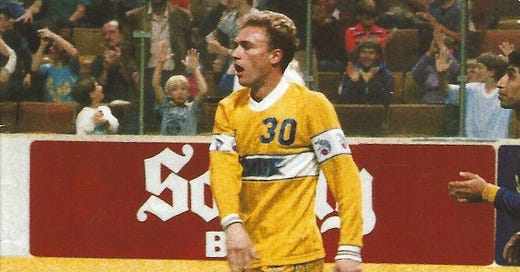Andy Scores! Vol 3 - Part 1/4: Off to Cleveland
Salary negotiations break down in Wichita and Chapman makes the move to the Force.
Keep reading with a 7-day free trial
Subscribe to MISL 1980s: The Story of Indoor Soccer to keep reading this post and get 7 days of free access to the full post archives.



